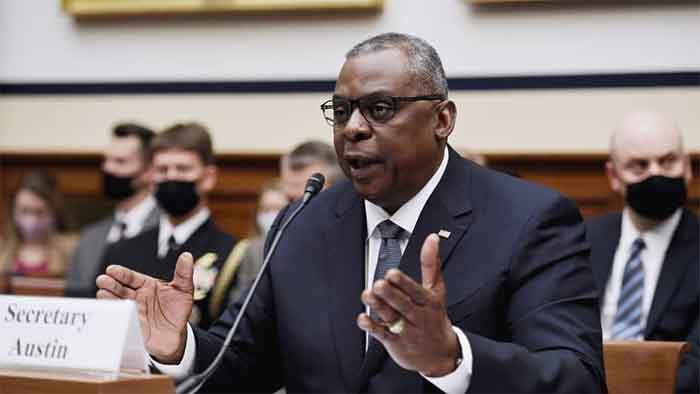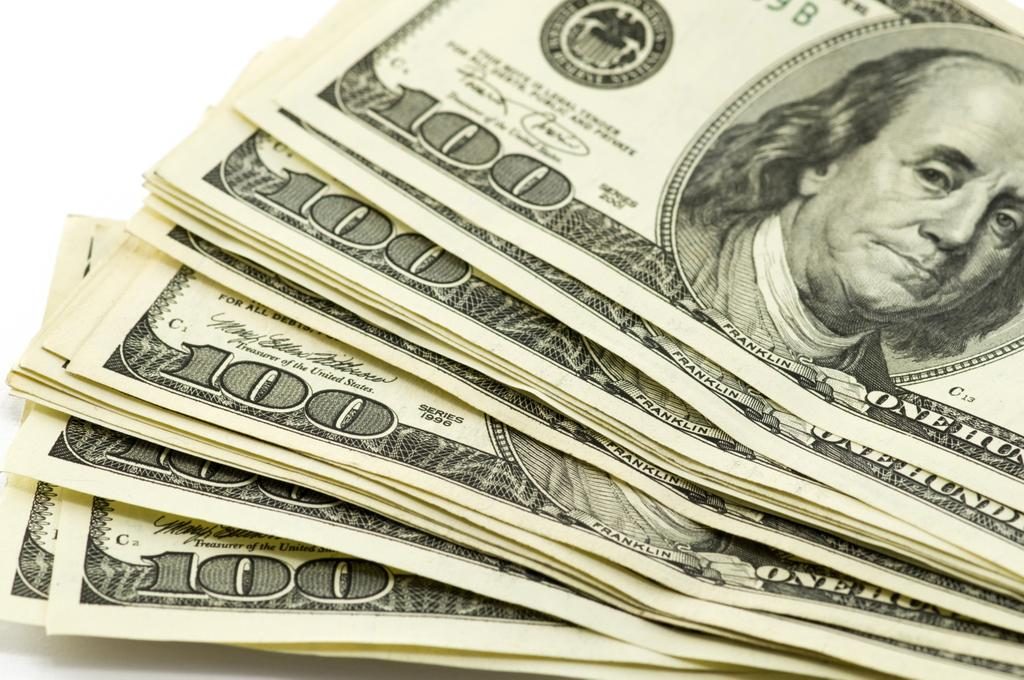
U.S. Defense Secretary Lloyd Austin and other senior Pentagon officials have urged U.S. lawmakers to extend the federal borrowing limit, insisting a default on the national debt would be devastating for America’s reputation and “embolden” China.
Testifying at a Senate Defense Appropriation hearing on Thursday, both Austin and Chairman of the Joint Chiefs of Staff Mark Milley spoke in support of the White House’s 2024 budget request, also warning that a default would deal a major blow to U.S. national security.
“China right now describes us in their open speeches, etc., as a declining power,” Milley said. “Defaulting on the debt would only reinforce that thought and embolden China and increase risk to the United States.”
Arguing that the Pentagon’s $842-billion budget request for next year is “driven by the seriousness of our strategic competition with the People’s Republic of China,” Austin went on to state that a default would carry “substantial risk to our reputation” which could benefit Beijing.
“What it would mean realistically for us is that we would not, in some cases, be able to pay our troops with any degree of predictability. And that predictability is really really important for us,” he added. “This would have a real impact on the pockets of our troops and our civilians.”
In his opening remarks, the defense secretary also said the budget sought by the military would mark a 3.2% increase over 2023 – including a 40% boost to the ‘Pacific Deterrence Initiative,’ which aims to expand the U.S. military presence in China’s backyard – but insisted the money is required to meet the “pacing challenge” posed by the PRC.
Austin and Milley are the latest in a series of senior officials to issue dire warnings about a potential default, as lawmakers struggle to strike a deal to extend the federal borrowing limit, which currently sits at $31.4 trillion and could be reached as soon as next month.
Earlier on Thursday, Treasury Secretary Janet Yellen claimed a default would be “a catastrophe,” suggesting the move could “raise questions about our ability to defend our national security interests.”
Director of National Intelligence Avril Haines also told Congress last week that both China and Russia would seize on a debt default, saying they could use the event to portray “chaos within the United States.”
Much like the Pentagon, President Joe Biden himself has also stated that default is simply “not an option,” as it could trigger a recession and damage the U.S.’s international reputation “in the extreme.”
Biden And Congressional Leaders Meeting Postponed
Another media report said:
A meeting between U.S. President Joe Biden and congressional leaders to discuss the debt ceiling and looming default has been postponed after staff-level talks proved unsuccessful.
Biden was set to talk with congressional leaders on Friday to follow up on earlier debt ceiling negotiations that followed a meeting with Republican and Democrat leadership at the start of the week.
U.S. House Speaker Kevin McCarthy said the postponement was due to the fact that not enough progress was made during the staff-level talks, and that it should not be seen as a delay.
“The White House did not cancel the meeting – all of the leaders decided that it is probably in the best of our interest to let the staff meet again before we get back together,” McCarthy said on Thursday. “It is not a delay. I do not think there is enough progress for the leaders to get back together.”
McCarthy said he expects the leaders to meet again sometime next week.
The House speaker further noted that the postponement should not be read as a signal that talks are falling apart, adding it will be more productive to let staff meet again.
Biden is feeling the pressure of negotiations as the time for a potential US default dwindles, McCarthy said.
Last month, House Republicans passed legislation to raise the debt ceiling in exchange for cuts to government spending. However, Biden and Schumer both rejected the measure, with the U.S. Senate instead opting for holding hearings to highlight setbacks that would be caused by the GOP-cleared measure.
The U.S. has been operating under the use of “extraordinary measures” taken up by the Treasury Department since January; however, Treasury Secretary Janet Yellen has said the US could default on its financial obligations as early as June if Congress fails to act on the matter.
U.S. Households
An NBC News report on May 4, 2023 — How a U.S. debt default would affect American households — said:
“The president and the speaker need to reach an agreement to get us past this impasse. That is my message going down to the White House meeting,” Senate Minority Leader Mitch McConnell, R-Ky., told reporters Tuesday. “It’ll be my message in the White House meeting.”
So, what would happen to average Americans if the government defaults on its financial obligations?
Following Treasury Secretary Janet Yellen’s announcement Monday about running out of time to pay bills, borrowing costs for the U.S. government soared to more than 5% for June.
This was predictable. In fact, the U.S. did default once, by accident. In 1979, a series of events including the failure of word-processing equipment caused a temporary delay in payments to investors redeeming U.S. Treasury bills, Reuters has reported.
Afterward, the cost of borrowing money for the U.S. increased by 0.6%, the wire service said, adding that an academic paper published a decade later argued that the ratcheting up of borrowing costs for the U.S was permanent.
If the U.S. were to default again, the result would be the same, said Howard Gleckman, senior fellow in the Urban-Brookings Tax Policy Center at the Urban Institute, a nonprofit research group.
As many consumers have learned since the Federal Reserve began its campaign last year to make borrowing more expensive in a bid to slow inflation, higher interest rates affect everything from credit cards to auto loans to mortgages.
“The primary effect would be interest rates going up significantly,” Gleckman said. “And they’re already going up quickly and steeply. What this would do is accelerate movement toward higher interest rates.”
Meanwhile, businesses would have more trouble getting loans — and, as a result, hiring more workers, Gleckman noted.
Many commercial interest rates have already gone up in the wake of the collapses of Silicon Valley Bank and First Republic Bank.
Besides higher borrowing costs for the government, consumers and businesses alike, federal payments might come to a standstill as the Biden administration is forced to confront how to prioritize payments coming due with the funds it still has available.
In other words, it would have to consider whether to pay bondholders before releasing Social Security and Medicare funds.
Gleckman said such direct effects from a default are almost impossible to know, because there is no playbook for handling them.
“We do not know how [the] Biden admin would treat a default,” he said. “Which bills would they pay?”
Yellen has already warned that there is no easy way to reprogram the government’s payment systems to favor one set of recipients over another.
“Treasury systems have all been built to pay all of our bills when they are due and on time, and not to prioritize one form of spending over another,” she said this year, Bloomberg reported.
Wells Fargo economists said in a note to clients last week that even if a payment prioritization plan were implemented, such a plan “would be entirely experimental and would still come with a litany of legal, technical, economic and political challenges.”
“The economic impact of a default is highly uncertain since that has never happened previously, but economic modeling suggests the fallout could be quite severe,” they wrote.
Economic analysts remain pessimistic about the chances of coming to a resolution soon.
In a note to clients Wednesday, Capital Economics research group Deputy Chief U.S. Economist Andrew Hunter said, “It may take more serious signs of stress — potentially involving significant volatility in the stock market — to finally push lawmakers into action.”
Panic Will Overtake Market
A CNBC report — Jamie Dimon warns panic will overtake markets as U.S. approaches debt default — said on May 11, 2023
JPMorgan Chase CEO Jamie Dimon said Thursday that markets will be gripped by panic as the U.S. approaches a possible default on its sovereign debt.
An actual default would be “potentially catastrophic” for the country, Dimon told Bloomberg in a televised interview. Dimon said he expects that worst-case scenario will be avoided, however, because lawmakers will be forced to respond to growing concern.
“The closer you get to it, you will have panic” in the form of stock market volatility and upheaval in Treasurys, he said.
Dimon joined a host of business figures and administration officials making dire predictions about the consequences of failing to raise or suspend the U.S. debt limit and allowing the world’s largest economy to default on its bonds. Treasury Secretary Janet Yellen has said the idea that the country could default should be “unthinkable” and would lead to economic disaster.
“If it gets to that panic point, people have to react, we have seen that before,” Dimon said.
But “it is a really bad idea, because panic becomes something that is not good,” he added. “It could affect other markets around the world.”
The report said:
JPMorgan, the biggest U.S. bank with about $3.7 trillion in assets, has been preparing for the risk of an American default, Dimon said.
Such an event would ripple through the financial world, impacting “contracts, collateral, clearing houses, and affect clients definitely around the world,” he said.
The bank’s so-called war room has been gathering once weekly, a rate that will shift to daily meetings around May 21 and then three meetings daily after that, he said.
He exhorted politicians from both major U.S. parties to compromise and avoid a ruinous outcome.
“Please negotiate a deal,” Dimon said.
In the wide-ranging interview, Dimon said he speaks daily to regional bank executives amid concerns sparked by the Silicon Valley Bank collapse in March. Last week, JPMorgan emerged as the winner in the government-brokered auction for First Republic.
Regional banks are “quite strong” and will have good financial results, but managers are worried because of the bank runs that have taken down three firms, he said.
“I think we have to assume there will be a little bit more” to the regional banking crisis, he said.












































